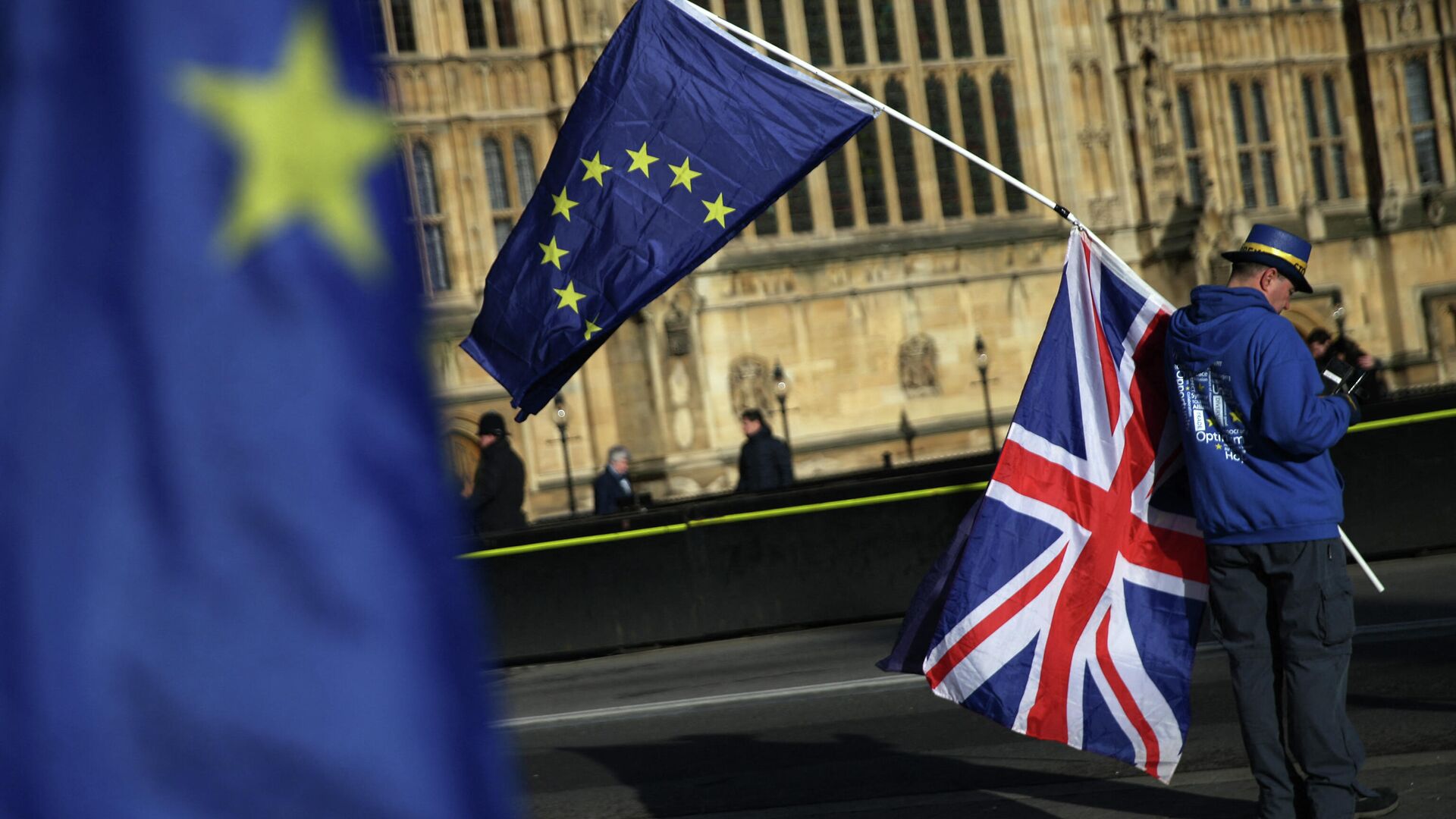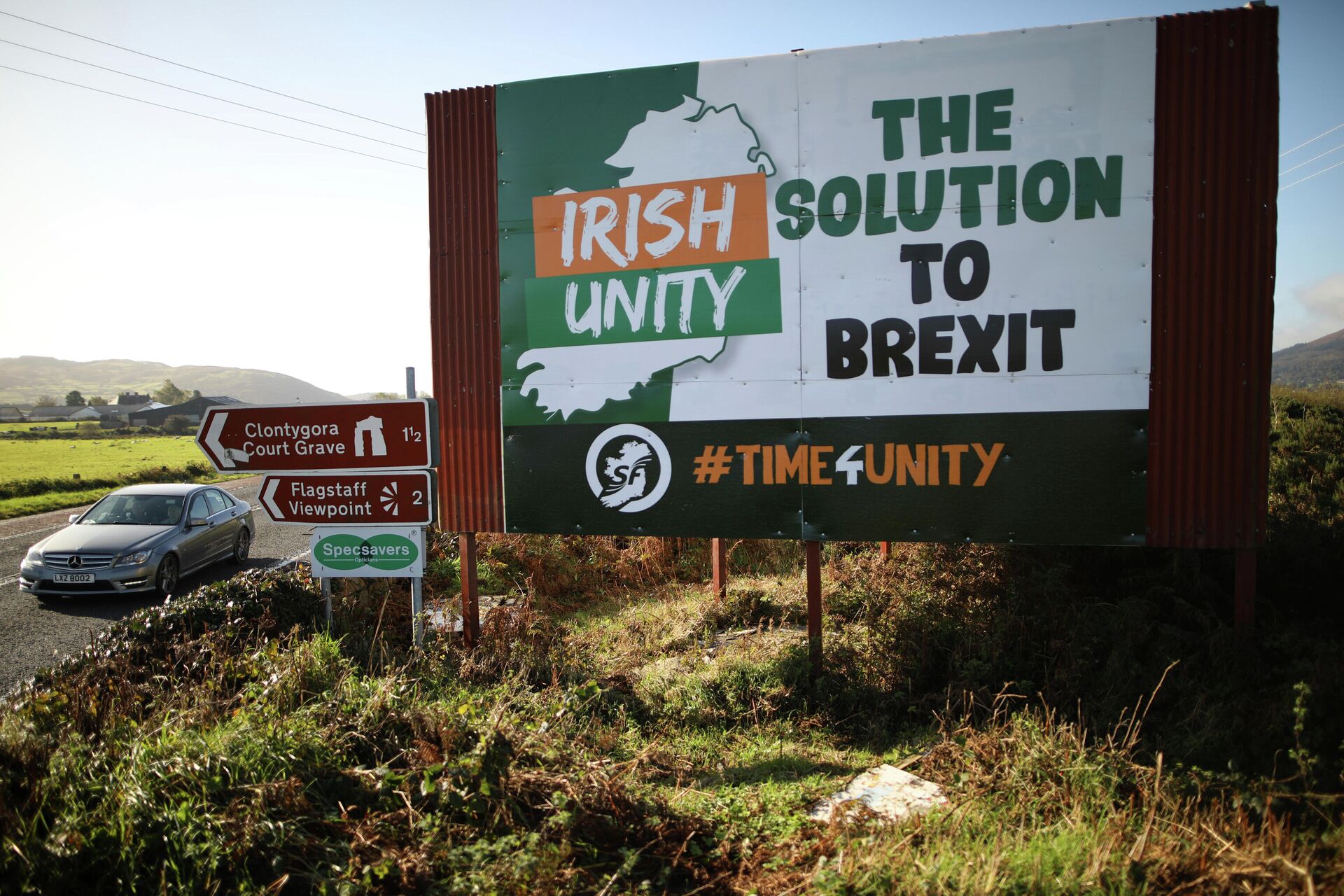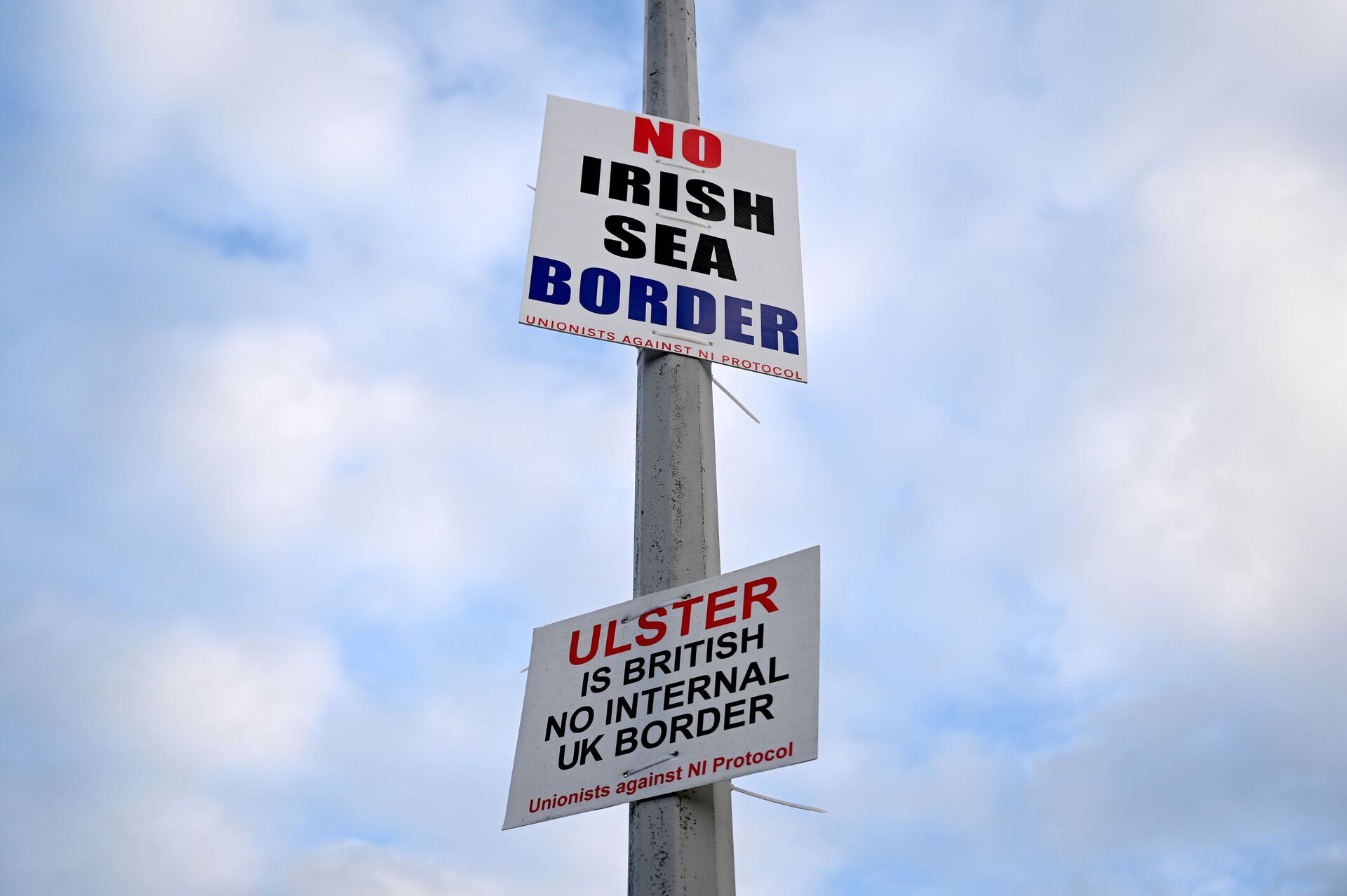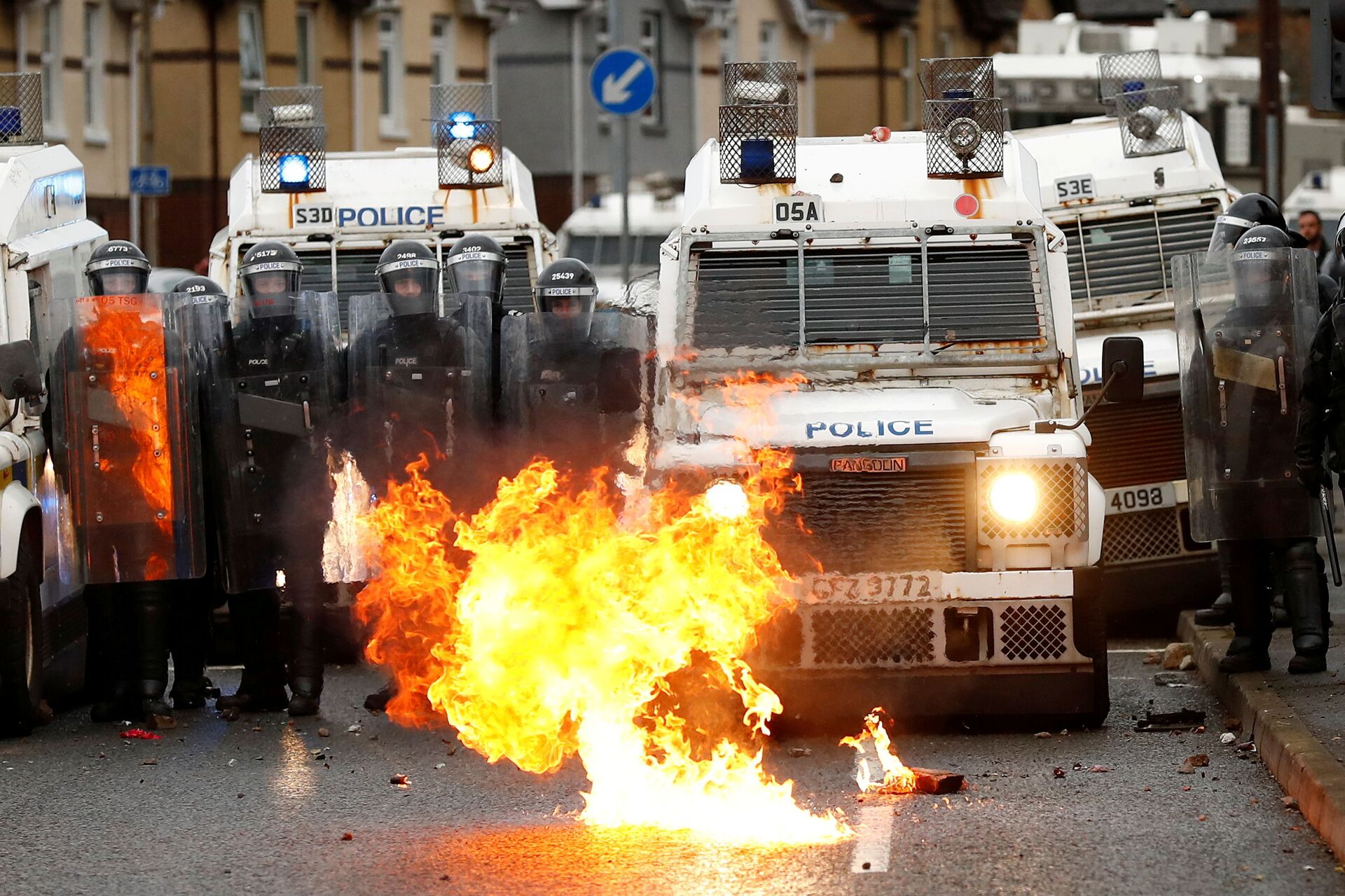Boris Johnson's Gov't Slams Ex-PM John Major For 'Trying to Settle Scores Over Brexit'
07:06 GMT 07.11.2021 (Updated: 15:35 GMT 28.05.2023)

© AFP 2023 / DANIEL LEAL-OLIVAS
Subscribe
Ex-Prime Minister Sir John Major criticised the government of Boris Johnson on 6 November, saying that “there is a general whiff of ‘we are the masters now’ about their behaviour’ as he weighed in on the UK’s post-Brexit issues over the Northern Ireland Protocol as well as the Owen Paterson “sleaze row”.
Sir John Major’s recent statements criticising the government of UK Prime Minister Boris Johnson have triggered a scathing response. The ex-Tory PM has been accused of seeking to “settle scores over Brexit”, which he opposed, according to the Daily Mail.
"I have been a Conservative all my life. And if I am concerned at how the government is behaving, I suspect lots of other people are as well. It seems to me, as a lifelong Conservative, that much of what they are doing is un-Conservative in its behaviour," said Major on BBC's Radio 4's Today programme on 6 November.
The former Prime Minister also deplored the fact that the current government had “broken the law, the prorogation of Parliament… They have broken treaties, I have in mind the Northern Ireland Protocol. They have broken their word on many occasions."
I’m not a conservative but, Sir John Major was spot on in this interview. https://t.co/2VdbA6Pmnx
— Simon Allis 💙 (@Simon_Allis) November 7, 2021
This was a reference to the ongoing attempts of the United Kingdom and the European Union to solve their Brexit-related trade disputes over Northern Ireland. After three weeks of intensive negotiations, as a last resort, UK ministers have implied the possibility of triggering Article 16 of the Northern Ireland Protocol to unilaterally impose "safeguard" measures.

John Major Rips BoJo's 'Politically Corrupt' Gov't Over 'Shameful' Handling of Paterson 'Sleaze' Row
6 November 2021, 13:50 GMT
Downing Street says the protocol has resulted in disruptions in trade and shortages, arguing that a "new legal text" should replace the protocol that has "lost consent" in Northern Ireland. Brussels, however, has shown no inclination to renegotiate a protocol agreed with London just two years ago.
‘We Are The Masters Now’ Approach
John Major had suggested on Saturday that Boris Johnson’s administration had embraced a “we are the masters now” approach regarding the protracted negotiations with the EU, as well as the current Owen Paterson “sleaze row”.
“There's a general whiff of "we are the master's now" about their behaviour and I think this is cutting through to the public… It has to stop, it has to stop soon,” said Major.
In response, a government source was cited by the Mail as saying:
“The comments from John Major suggest a fundamental misunderstanding of the Northern Ireland Protocol. Article 16 is a safeguard within the treaty to be used by either side in the event that the protocol causes serious difficulties in real life. Given the significant disruption the protocol is causing in Northern Ireland we would be within our rights to use this safeguard. It would not be breaking any treaty. It’s difficult to avoid thinking that John Major is simply trying to settle scores over Brexit.”
Under the NI protocol, negotiated when the UK exited the EU bloc, goods can travel freely between the EU and Northern Ireland, and from Northern Ireland to Great Britain. Furthermore, the same source was cited as saying that John Major “seems to have forgotten” that the EU had sought to trigger Article 16 to establish border controls on coronavirus vaccine doses moving into Northern Ireland from the Republic of Ireland in January 2021.

FILE - In this Wednesday Oct. 16, 2019 file photo motorists pass along the old Belfast to Dublin road close to the Irish border in Newry, Northern Ireland
© AP Photo / Peter Morrison
Brussels was forced to backtrack on its plan after Boris Johnson and Irish PM Micheál Martin conferred with European Commission President Ursula von der Leyen. The spat had “significantly undermined cross-community confidence in the protocol in Northern Ireland”, stated the UK government source.
The protocol states that Article 16 can be used in the event of “serious economic, societal or environmental difficulties that are liable to persist”. Former Brexit Secretary David Davis also levelled a broadside at “intrinsic Remainers” like Sir John Major.
According to him, they find fault with the UK’s negotiating strategy while failing to address the fact that France is “clearly trying to make life difficult” amid haggling over post-Brexit fishing licenses. The latter was a reference to French Prime Minister Jean Castex’s private letter to the European Commission President, cited by media, that read:
“It… seems necessary for the European Union to show its full determination to obtain full compliance with the agreement by the United Kingdom and assert its rights by using the levers at its disposal in a firm, united and proportionate manner. It is essential to make clear to European public opinion that compliance with the commitments entered into is non-negotiable and that leaving the Union is more damaging than remaining in it.”
In reference to Major’s comments, Davis was cited as saying that Article 16 “was put there for unforeseen circumstances arising.”
“… And at the moment we are heading towards exactly that – a position that is untenable for Northern Ireland businesses. It is entirely proper to consider applying it. This would be more credible if John Major had criticised the EU when they threatened to use it in a manner that was not appropriate – over vaccines. That was, bluntly, a vindictive use,” said David Davis.
This comes as European Commission vice-president Maros Sefcovic travels to London for further talks, after warning on 5 November that triggering Article 16 “would have serious consequences.” Downing Street has repeatedly said that while preferring to negotiate with the EU, it would be prepared to use the mechanism if a solution cannot be reached.

Signs reading 'No Irish Sea border' and 'Ulster is British, no internal UK Border' are seen affixed to a lamp post at the Port of Larne, Northern Ireland, March 6, 2021. Picture taken March 6, 2021
© REUTERS / CLODAGH KILCOYNE
The Northern Ireland Protocol, part of the European Union and United Kingdom's Brexit agreement, was designed to prevent a hard border on the island of Ireland. It prevents checks on goods coming from Northern Ireland (part of the UK) into the Republic of Ireland (part of the EU) in a bid to preserve the 1998 Good Friday Agreement, which had brought to an end decades of sectarian violence in Ireland. However, Northern Ireland, accordingly, must follow the rules of the EU's single market, resulting in checks on certain goods coming in from England, Scotland and Wales.
This has prompted protests from unionists in Northern Ireland who argue the protocol weakens ties with the rest of the UK. In mid-October Brussels agreed to a reduction in customs checks and paperwork between the United Kingdom and Northern Ireland, yet baulked at scrapping the European Court of Justice's oversight role concerning the Northern Ireland Protocol – something the UK government had sought.

